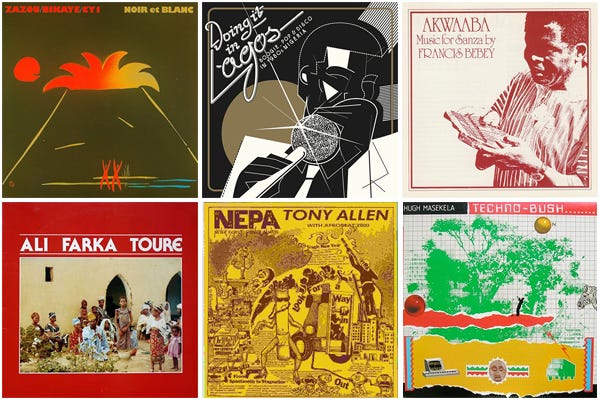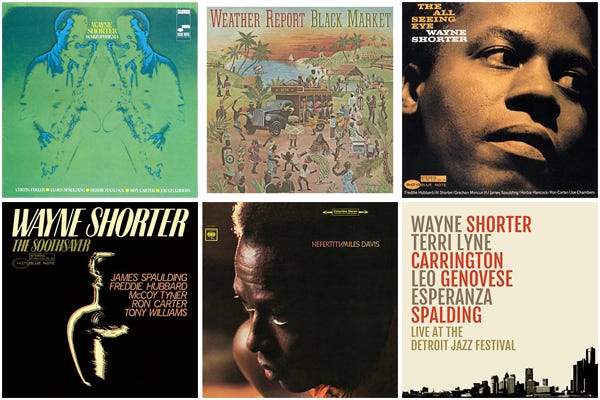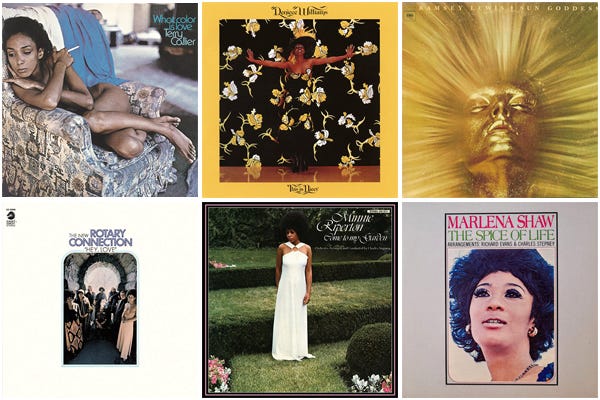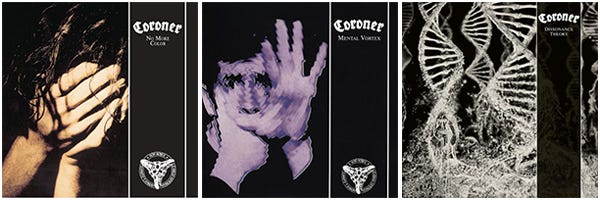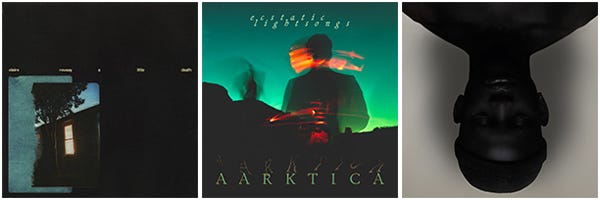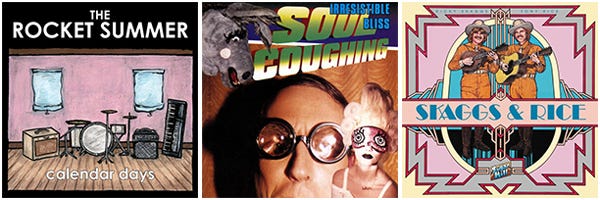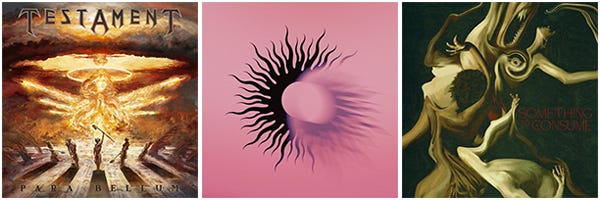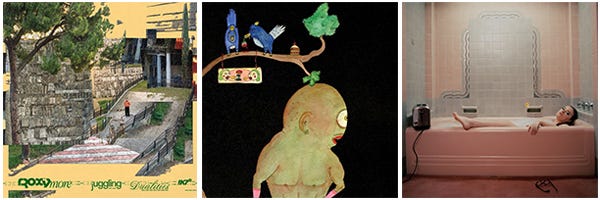New on Shfl, November 2025
Andy Beta on 1980s African Music, Hank Shteamer on Wayne Shorter, Harold Heath on Charles Stepney, Chris Catchpole on Lawrence, plus a pile of new recommendations
Andy Beta on 1980s African Music
On the flip side, African artists themselves also emerged on the world stage like never before and found new audiences in the West. Much like Simon could hear a sound that evoked memories of his favorite songs, ‘80s music fans could hear something new coming out of Africa. One can hear the funk of James Brown coursing through Fela’s Afrobeat. King Sunny Ade is a guitar god regardless of genre. The blues coursed through Ali Farka Touré’s Malian music, and even if you don’t understand Wolof, Youssou N’Dour had a commanding voice.
Collections
Hank Shteamer on Wayne Shorter
In 20th century music, Miles Davis, Herbie Hancock and Wayne Shorter form a kind of holy trinity, nearly unrivaled in the scope of their impact and influence across genres. And while Miles is the indisputable icon and Herbie (still vital and active at age 85) reached the pinnacles of both jazz innovation and pop success, Wayne was every bit their equal, a perpetual vanguardist throughout his six-decade-plus career.
Harold Heath on Charles Stepney
The history of popular music is full of unsung backroom figures who shied away from the limelight and quietly performed their musical alchemy behind the scenes, people like Chicago producer, arranger, composer, musician, and songwriter Charles Stepney. Decades after he passed away in 1976, Stepney is now rightly celebrated as an influential and important figure, his work characterised by rich, sumptuous and detailed symphonic arrangements, his pioneering use of electronic techniques and instruments, and a bold, ambitious approach that effortlessly blended and then surpassed jazz, soul, rock and psychedelia.
Chris Catchpole on Lawrence
Evidence of Lawrence’s eccentricities – not letting visiting journalists use his toilet, firing a recording engineer for having the wrong shoelaces – can be observed in Paul Kelly’s 2011 film Lawrence of Belgravia and Times journalist Will Hodgkinson’s wonderful 2024 book Street Level Superstar. Yet much more than being a delightfully peculiar oddball, for those in the know, Lawrence is responsible for some of the most captivating and singular records of the past four decades.
Reviews
Phil Freeman
Coroner — No More Color
The third Coroner album is the peak of their first era, the ultimate expression of the technical thrash style they’d built on 1987’s R.I.P. and 1988’s Punishment For Decadence, while hinting at the experimental groove metal that would come on 1991’s Mental Vortex and 1993’s Grin.
Coroner — Mental Vortex
Samples of movie dialogue, news broadcasts about the assassination of US President John F. Kennedy (on “Semtex Revolution”) and a few eerie sound effects demonstrate an awareness of the larger world, but Mental Vortex is often a very claustrophobic album, trapping you in a small space with three men focused on their work.
Coroner — Dissonance Theory
The Swiss thrash trio Coroner produced five albums (and a self-titled odds-and-ends farewell compilation) in their initial run, evolving from 1987’s ambitious and flashy (with occasional Popol Vuh-esque intros and interludes) R.I.P. to 1993’s grimy, industrial-tinged Grin. Then they faded away. But in 2010, they reunited and began playing live, and now, more than 30 years after their last album, they’re fully back.
Ned Raggett
claire rousay — a little death
a little death, rousay’s late 2025 album, finds her continuing to explore in many different directions even in the short space of barely over half-an-hour, a testimony to her abilities.
Aarktica — Ecstatic Lightsongs
If the throughline of DeRosa’s work, as Aarktica or his own, has arguably been darker shades of guitar and electronic atmospherics, what’s also notable is the stylistic fluidity he’s shown in turn from ambient flow to stark folk, with Lightsongs being one of his more lyrically and musically formal efforts.
Wayne Snow — Snowdome
Nigerian artist Wayne Snow had made a growing mark with earlier releases before 2025’s Snowdome but said effort, another excellent example of a half-hour collection feeling like a proper full album at ten tracks, further showed the excellence at work.
Rick Anderson
The Rocket Summer — Calendar Days
Bryce Avary released this, his first full-length album under the name The Rocket Summer, in 2003 when he was twenty years old. He wrote all the songs and played all the instruments, and the whole thing is an absolutely exhilarating, headlong blast of intensely melodic guitar pop.
Soul Coughing — Irresistible Bliss
Soul Coughing’s second album finds them continuing to explore and develop their highly unusual fusion of funk, jazz, hip hop, and musique concrète. “Super Bon Bon,” the opening track, lays out their whole concept: Sebastian Steinberg’s acoustic bass grinds out a rumbling foundation onto which sampling keyboardist Mark Degli Antoni dumps layer upon layer of found-sound oddments, while drummer Yuval Gabay pushes everything along with what starts out as a meathead four/four rock beat and then, on the chorus, turns into a frenetically funky groove.
Ricky Skaggs, Tony Rice — Skaggs & Rice
When they recorded this album in 1980, neither singer and multi-instrumentalist Ricky Skaggs nor guitar superhero Tony Rice was yet 30 years old, but both were already elder statesmen of bluegrass: Skaggs had toured with Ralph Stanley and with the Country Gentlemen, while Rice had long since picked up the mantle left by Clarence White and taken the guitar into uncharted territory as a lead bluegrass instrument.
Jeff Treppel
Testament — Para Bellum
From the opening riff of “For the Love of Pain” — with its slashing guitars, tech-death drumming, and a deranged vocal performance from Chuck Billy — it thrills like their best Reagan-era screeds. Lyrics (never Billy’s strong suit) aimed at AI, shadow conspiracies, and gunslingers can feel a bit silly, but when backed up with the Alex Skolnick/Eric Peterson guitar onslaught and new drummer Chris Dovas’s nimble limbs, they hit the target.
AFI — Silver Bleeds the Black Sun...
It’s been over two decades since emo-goth poster boys AFI were worth pinning on the wall, and Davey Havok’s newfound scumbag mustache didn’t exactly inspire confidence leading up to their twelfth album. Thankfully, looks can be deceiving: Silver Bleeds the Black Sun… feels like a band clawing out of the grave. It’s their finest work since genre cornerstone Sing the Sorrow.
Die Spitz — Something to Consume
Primal in the way the best punk and metal prodigies always scream, this foursome — barely of drinking age — barrel through a genre-agnostic barrage of exorcisms, from bad girlfriends to bad situations to the generally bad hand we’ve all been dealt.
Joe Muggs
Emma-Jean Thackray — Weirdo
Musically, Thackray cross-wires her influences more elegantly and intricately than ever, weaving what is simply one of the most distinctive sounds in 2020s music. Inspiring on multiple levels.
Jamie Lidell — Places of Unknowing
As midlife introspection deep dives go, this one’s a doozy. Over a long career, Jamie Lidell has done everything from the most brain-scouring and underground of techno to modernist funk-soul that got him gigs supporting James Brown, Prince and Elton John. But after a very circuitous route, ending up with him living in Nashville, and a nine year gap between albums, he returned with this deep and dark set of reflections on adulthood, responsibility, ageing, neurodivergence and dark nights of the soul.
rRoxymore — Juggling Dualities
Hermione “rRoxymore” Frank’s electronic music has been honed through live performance above all else, and it’s given her an almost unrivalled sense of pacing, space and movement. Her third album is extraordinarily gentle and poised on first listen: its New Age ripples of arpeggio, warm bubblebaths of soft ambient chords and gentle deep house pulses in radical contrast to the stark, skittering, rhythm-driven approach of its 2022 predecessor Perpetual Now.


